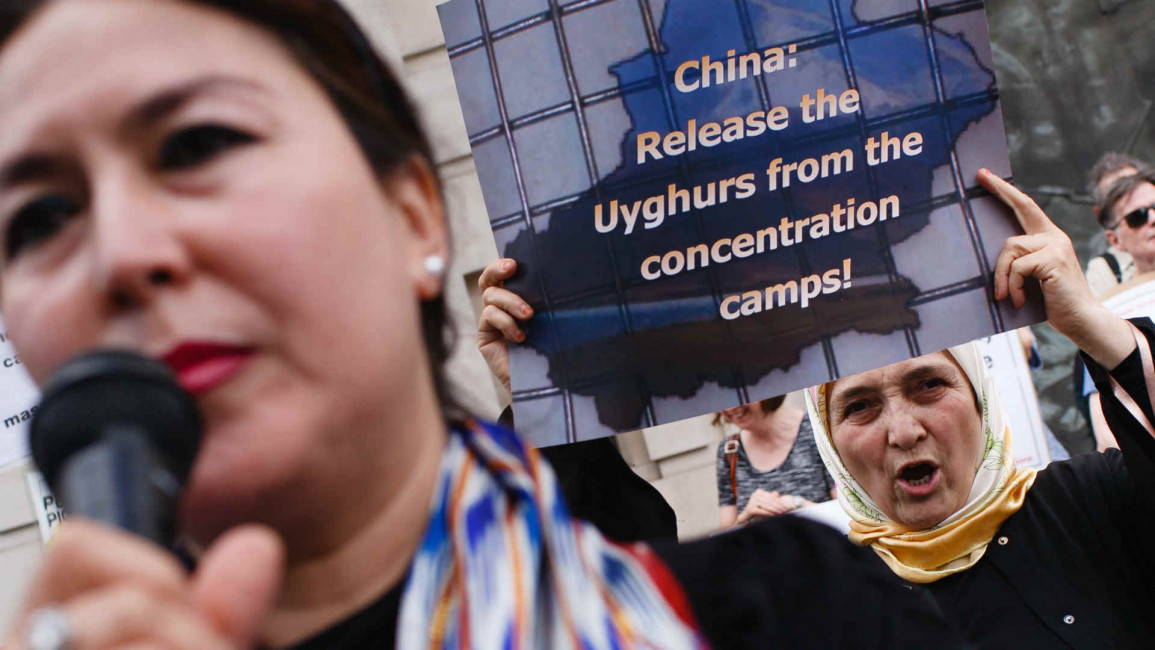Leaked documents reveal how China ensures 'no escape' for Uighur from Xinjiang camps
The China Cables, obtained by the International Consortium of Investigative Journalists (ICIJ) and shared with 17 global media partners, provide an unprecedented look at the structure and ideological framework behind the network of camps in China's northwestern Xinjiang region.
The new document leak follows an unprecedented leak of Communist Party (CCP) documents shared with The New York Times earlier this month. That document cache revealed how Chinese officials formulated their policy to contain the country's Muslim minorities.
The government documents shared with the ICIJ and verified by experts mirror reports by human rights activists and organisations that claim the camps are involuntary and secret, rather than the voluntary "vocational training" centres the Chinese government claims them to be.
They appear to confirm that the camps were formulated from the onset as a large network of brainwashing detention centers where inmates are confined using mutliple layers of security.
|
|
A 2017 cable signed by Zhu Hailun, the top security official and deputy party chief in Xinjiang, reveals that inmates can be held in the camp indefinitely, but are subject to a minimum term of one year in detention, The Guardian reported.
Communication with the outside world is strictly controlled. Mobile phones are banned, and detainees are only allowed weekly phone communication and a monthly video call with relatives, which can be suspended at any time.
If detainees "really need to leave the training centre due to illness or other special circumstances, they must have someone specially accompany, monitor and control them", the document says.
Constant control
Inside the detention camps, the mostly Uighur Muslim inmates earn "points" for "ideological transformation", "compliance with discipline" and "study and training" while being held in a highly secure environment to ensure there are no escapees.
Local officials are told to monitor detainees at all times - including during toilet breaks - to prevent escape, and surveillance cameras are installed to ensure round-the-clock coverage with "no blind spots".
Dormitories, corridors, floors and buildings are all subject to multiple layers of locks.
Individual buildings are surrounded by fences, while camp compounds as a whole are encircled by walls, guarded by officers in watchtowers. The gate of every camp must also have a police station.
|
|
The system of control detainees are subjected to is so complete that inmates are even assigned a specific place to queue for food.
Staff are also banned from befriending inmates and engaging in "personal interactions" to prevent "collusion", according to AFP.
Even after completing their "ideological transformation", detainees are not allowed to go free. Instead, they are moved to secondary detention centres, where they are subject to another three to six months of "labour skills training". Reports suggest this second tier of camps may involve forced labour.
After their release from the second level of detention centers, former inmates are still subject to surveillance, with local officials told that "students should not leave the line of sight for one year".
Former detainees have reported accounts of torture, rape and abuse. The leaked documents give credence to those reports of extreme abuses, with staff ordered to "never allow abnormal deaths".
The document cache also reveals an extreme level of secrecy imposed on officials working in the camps.
As well as being banned from using cameras on site, officials are told not to aggregate data about the camps, preventing even those who work within the system from knowing its full extent.
"It is necessary to strengthen the staff's awareness of staying secret, serious political discipline and secrecy discipline," the order says.
China's London embassy said in a statement to The Guardian that "the so called leaked documents are pure fabrication and fake news".
"There are no such documents or orders for the so-called 'detention camps'. Vocational education and training centres have been established for the prevention of terrorism," it claimed, adding that "trainees could go home regularly".
Follow us on Twitter and Instagram to stay connected



![Trump's warm greeting to Netanyahu contrasted with Kamala Harris's critical reception [Getty]](/sites/default/files/styles/image_330x185/public/2024-07/GettyImages-2162908988.jpg?h=69f2b9d0&itok=OLc5dL88)